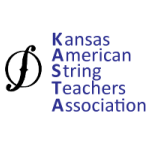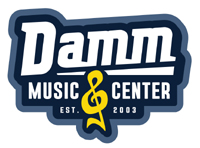
What do businesses look for in a potential employee? If asked most business owners might answer, “Someone who is punctual, can communicate, learns quickly, is committed to projects, can critically think and is a team player.” Well…A new trend in public school education at the high school level helps students develop their effectiveness and success in their future careers. Many public high schools are utilizing Career Pathways. The Career Pathways include: Business & Communication; Health & Human Services; and Industry & Engineering. At my high school in Dodge City, Kansas, the Performing Arts are part of the “Humanities Pathway” along with Physical Education and Visual Arts. The “Humanities Pathway” recognizes the great opportunities that the Performing Arts give to students to make them ready for their future careers. Basically, our high school looks at these Career Pathway opportunities in the Performing Arts as “on the job training” for our students’ future careers. And, we take Growth Mindset quite seriously, because our Goal is NOT to focus on TEACHING, but RATHER to focus on student LEARNING!
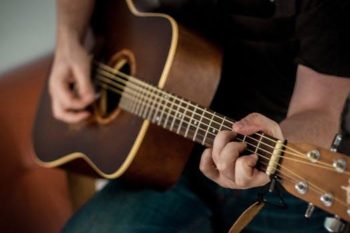
Throughout my career, I have observed what the fine arts, in particular music education, does in the development of a student participant. Each of the following values taught in an excellent music education program are nurtured and developed over time in the members of the music program’s ensembles. Each value is a skill needed to be a successful member of the music ensembles, but also needed in the work force during and beyond high school. Yes! Music education prepares students for the world beyond high school! How? Music education helps prepare students for future jobs by increasing students’ abilities to:
Possess a Growth Mind Set – Musicians know and embrace the idea of a growth mindset. It is the key to success and learning. “In a growth mindset, people believe that their most basic abilities can be developed through dedication and hard work—brains and talent are just the starting point. This view creates a love of learning and a resilience that is essential for great accomplishment,” writes Carol Dweck, professor of psychology from Stanford University. As music students embark upon their journey for each piece of music chosen for their repertoire, either solo, ensemble or in a cast, they have a choice to believe that they are going to accomplish the music in a satisfactory manner or not. Most musicians believe they can do it, even when a piece of music is very advanced, because they learn to think in a positive “can do” manner, which helps them achieve success.
Effectively Communicate – Communication is the key to most businesses, whether it is face-to-face, or through some version of correspondence. Effectively communicating keeps customers coming back again and again. Students involved in music education quickly learn to develop skills necessary to effectively communicate. Through working with other students in an ensemble, or collaborating on a duet, or working together in a musical, students must speak to each other to connect and collaborate in the activities required in music rehearsal.
Expand Soft Skills – Soft skills are defined as the essential skills or social cues that are needed to effectively communicate, problem solve, work together, and manage. Now, there is a very broad range of skills that make up soft skills, but knowing how to communicate with and provide customer service for people are the most important for businesses. This can be as simple as opening the door for someone, or making sure to greet all customers in a genuine manner as they enter your business. A student in music education learns to develop these skills through interactions with the other members of their ensemble. Music students will know how to use these skills in their place of employment to build the business.
Intentionally Listen – Businesses want employees who know how to listen to instructions and listen to customers. Listening for understanding takes practice. Music education students learn through solo and ensemble work how to intentionally listen. A student in a music class, musical or play must listen to others speaking, playing or singing.
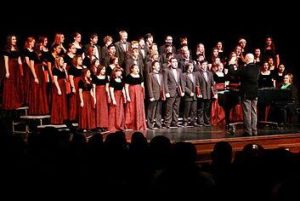
Interpret Nuances in Speech & Body Language – Understanding nuances in the voice and movement are essential to “reading” other people when interacting with them. Students involved in a performance ensemble will experience many of these through interaction with other ensemble members, but especially the conductor. A good conductor forces ensemble members to be aware of small changes in the conducting pattern, each giving direction for the ensemble. Expressive conductors tend to reflect the music. For example, a conductor might conduct a larger or sharper pattern when excitement is needed in the music, such as the dynamics are to be louder. The same is true for the opposite; quiet dynamics might equal a smaller more concise pattern. Students in an ensemble learn to read these small changes in body language. This will help in the ensemble member’s place of employment, as this person will be more aware of body language and speech patterns of potential customers. Knowing how to interpret speech and body language may help finish a sale, keep a customer interested, and make the customer more comfortable, which may create a lasting relationship between the customer and the business.
Critically Think – Music demands excellence, precision and analysis. Students who are playing an instrument or singing have to constantly analyze what they are rehearsing or performing. This constant analysis of their music and the technique used to play it or singing it helps a musician to develop critical thinking. Musicians must understand the rhythms and pitches used in a passage of music in relationship to the context they are trying to portray to the audience. Sometimes a musician is faced with music that is not completely written out on paper. For example, a Jazz ballad should not be played in a straight note for note rhythmic pattern as Jazz music incorporates a rhythm to be swung to be correctly played. So, the musician must critically analyze the piece to know how to swing the rhythm to create the proper style. Another example would be understanding one’s music theory quite well when asked to improvise, or to “fill-in” the proper notes within the proper key signature while playing. Sometimes a musician is asked to interpret a passage of music by playing through chord symbols or chord structure. Employing critical thinkers are a benefit to a business as they are able to take pieces of learned information and apply it to a task.
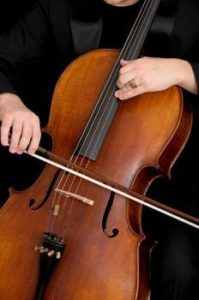
Commit to Projects – Every time a musician picks up a piece of music to play, a commitment between the musician and the music in hand is rendered. Students in music education understand that playing or singing is a commitment to rehearsing a piece enough to proficiently perform the music in a musical manner. Depending on the difficulty of the music, this commitment takes a little time to accomplish, or can take weeks or even months to perfect. A drive to be perfectly proficient in playing the notes and rhythms and interpreting the style of a piece of music is what develops a student of music education’s desire to commit. Their understanding of persistence and commitment is carried over into their non-music life and great things can be accomplished. Giving up is usually not in a musician’s vocabulary. As an employee of a business, musicians will understand that commitment is integral to performing tasks and to being at work.
Be Prepared for Tasks – Much like understanding the aspects of commitment, a musician understands that he or she must be prepared for the expectations of a piece of music. Whether in rehearsal with an ensemble or while working on a solo project, music students know that they are expected to be able to play the rhythms and notes in order to communicate the expressive qualities of their piece. Students who understand it takes discipline and hard work to accomplish tasks make great employees, because they have experienced this on a daily basis in rehearsals. An example is a musical student’s audition for a role in a musical. When he or she receives it, an expectation is agreed upon to have the music learned to be successful. The student must be prepared for the role by knowing lines of dialogue, music and interpretation of the role. An unprepared actor/singer will ruin the continuity of the performance. An expectation to complete tasks is something a musician will bring to an employer’s business!
See the BIG Picture – Music demands that the performer visualize the finished product or “The BIG Picture.” Whether the musician is practicing a solo or is part of an ensemble, the performer learns to set goals and practice to something bigger than when he or she started at the beginning of the practice session. Visualizing where a piece must be taken is very important to setting a schedule and making sure that the piece is learned in time for the performance.
Develop & Execute Plans – Students of music education must learn to work within a plan. It is never best to cram when practicing music. Cramming to learn does not develop muscle memory, but rather it fatigues muscles. It is known that fatigued muscles do not learn the same way as relaxed muscles. Students in music know how to plan a routine, stick to it and work in small spurts to accomplish tasks. Students of music also understand that practice makes for better skill development. And, music students know that carrying out the plan is the only way to effectively accomplish tasks. All of this will help a student in their future career. A music student will understand how to develop and execute a plan, while employed!
Prioritize – Students in music must learn to order their tasks or prioritize for maximum efficiency while practicing. Students learn to work on the difficult passages first, so they can play with better continuity. A student of music education will quickly learn that just practicing a piece from front to back (beginning to end) is not efficient practicing. In some situations, time can be an issue. Music students learn to practice those parts that need repetition, not just the easy-to-play-sounds good parts of their music. Music students also understand that they must carve out time or prioritize their lives to practice. What a music student will bring to their place of employment is an understanding of orderliness and knowing how to tackle “the hard stuff” first.
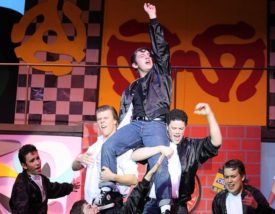
Be A Team Player: Leader-Cheerleader-Peacemaker – Music ensembles must work as a team! And most students in a public or private school spend much of their music education in an ensemble (band, choir, orchestra or a musical). On these teams, students must learn to cooperate with fellow team members. They learn to effectively communicate to get the job done, whether it is as simple as working with or being a section leader, or portraying a major role in a musical production. Members of ensemble teams must learn to motivate each other, because not every rehearsal is perfect. Rehearsals are a means of exposing errors and mistakes, where members, sometimes aided by a director or leader, find creative ways to practice, correct and remember them…And at times it can be frustrating. So learning to be a cheerleader and motivator for each other is a must in music ensembles. And, because music ensembles/teams are collections of different personalities, music students learn how to understand and trust each other and find ways to work together, even if it sometimes means making peace with each other due to personality conflicts, or beliefs others possess. The ultimate goal in music is to work as a team to accomplish a task that is correctly and cooperatively performed in small and large venues for an audience. Music students in the workforce will understand how to be a leader, take direction, motivate and mediate!
Develop Creativity – Music classes expand a student’s musical and visual creativity through the study of many pieces of artwork. Every piece of music comes from a specific era or time period. Musicians must learn to put themselves in the era or feel the style of the music he or she is preparing to perform. By understanding fine arts eras, students are given the opportunity to expand their imagination through discussion, lecture, reading and writing about the era from which a particular piece of music was written. And students are given the tools to understand why a particular piece was written too. Another side of Creativity development comes through the actual creative doing of music. Students are occasionally given the opportunity to create their own music, problem solve and write about music. Music opens doors to the imagination, and the more a student’s imagination is utilized, the easier it is to think outside of the normal box we function in the most. Creativity is like a muscle, the more one uses it the stronger it becomes. The less one uses it, the more likely it is to become soft.
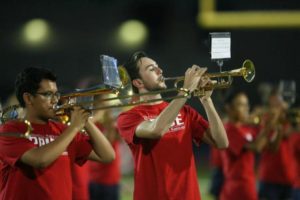
Pay Attention to Details – Music is full of details and an effective musician must know and practice how to use these details. Any given passage of music may not only have dynamics (loud and soft volume), but will also have stylistic markings instructing the musician how to play each note. In a typical music classroom, students will work on music that has two faces. One face is the music itself: that which is written on the page. It is full of symbols, words and languages instructing the musician of what and how to perform. The second is what comes off the page through the performance of the music by the musician. A musician learns to follow instructions and pay close attention to details when performing. This will be beneficial to their performance in their job. A well-trained musician, as a well-trained employee will understand how to read instructions and pay close attention to the details of any task. A student of music education will understand it takes time to get it right and will be willing to make sure that steps are not skipped, nor circumvented.
Broaden Vocabulary – Music Education offers many opportunities for students to broaden their vocabulary, not only the English language, but other world languages such as Italian, German, French and Latin (many others too). Music has been referred to as a universal language, because most countries use the standard music notation implementing Italian words to describe dynamics, stylistic markings and tempos. So, students are exposed to many foreign languages and they must make a correlation between them and their English meaning. Also, students in musicals, plays, and choral music tend to have higher vocabulary awareness due to the many higher level and historical words used in the musicals, plays and choir music. A side note…many choral pieces are written based on great poetry and literature passages as well as religious passages from The Bible.
Appreciate Diversity & Cultural Awareness – As the world grows smaller through technology appreciation of diversity and cultural awareness is very important in today’s society! The more one knows about a person or a subject, the more one will appreciate that person or subject. Two of the aspects that I love about music, are the cultural and historical. Every song written has a flavor of a culture from rock ‘n roll to a Baroque concerto, and is written as either a modern or historical song. When live music is re-created from the written page of music, musicians are instantly experiencing a bit of culture and of history that in turn allows the musicians involved the opportunity to discuss where the music came from, the era it was composed in or about, the composer and the reasons it was written. Understanding cultural and historical aspect of music will allow students to expand their knowledge of the world using a universal language that has been used for the last 400 years.
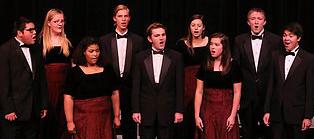
I tell my ensemble students every-so-often to look around the classroom…Look at all the different people who make up this ensemble. I tell them that they are making music with a very diverse set of people, who look, think, believe, and live differently than each other. This is what makes music so universal and no matter nationality or socio-economic status we all read and interpret music in a very similar way. An exchange student from Germany becomes a team member of a student from Pennsylvania as is a student from Brazil. And, each brings their own culture to the classroom and ensemble.
When musicians work together they become part of a special team, where they learn to appreciate each other. They bring this understanding of diversity and cultural awareness to their workplace that in turn makes businesses look good! Students who possess these understandings will be employees who recognize differences and can work with them too. They will not be afraid to approach people who look or act differently, but can embrace differences and work with them.
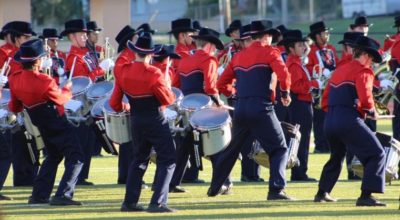
Use Appropriate Emotions – Music is constructed on emotion, whether it is performed with words or just sound from an instrument. Think of any movie, commercial television show, musical on a stage, the music in the production is meant to cause an emotional reaction from frenzied to calmness, from happy to sad. Music helps to prime the emotions of the listener. During rehearsals, musicians work on the emotion of each piece of music, hoping to create a performance that speaks to the audience through their emotions. Music students in the work place will understand how to read the emotion of their colleagues, managers, administrators and most importantly their customers.
Have Compassion for Others – Just as emotions are primed in music, so is compassion and empathy for others. As musicians study music for different situations, they too study music of other cultures. As students understand one another and other cultures, compassion for each other is developed. This will help students in the workforce as they will be more in touch with fellow workers and customers. They will be more likely to show empathy to others and be more likely to be a great customer service agent.
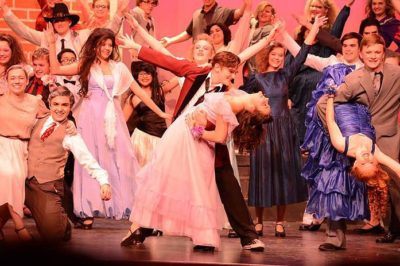
Focus – Focus is key to performing and rehearsing music. Not only short term focus, but also long term focus. Music demands that musicians concentrate while practicing and performing, so that passages of music are played accurately with all stylistic markings, dynamics as well as in tune. In the long term, musicians learn to see the big picture and understand the need to stay focused on tasks that require more than one setting to accomplish. They learn to create a schedule that when followed leads to success. Over time, musicians learn to develop intense focus while performing. This carries over into how they approach everyday tasks and to their jobs. Musicians have focus!
Be Passionate – Music teaches us about ourselves. When a musician works hard to accomplish a task he or she creates an appreciation for hard work. The more the musician works, the more this appreciation for hard work grows. The world is full of beauty, and it is the artist’s existence to capture that “beauty” both visually and in sound. As this pursuit of beauty builds, an artist grows passionate about capturing perfection through their hard work while acting, singing or playing an instrument. The musician internalizes this passion and becomes very self-ware. Once a person understands what passion for a desired task feels like, he or she begins to pursue it over and over. A skilled musician touches on this during every rehearsal and works to make it show in every performance. Once a person understands what it takes to develop a passion for something, they begin to pursue it in life, relationships and work.
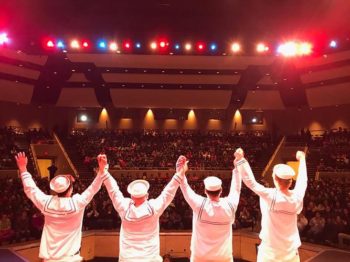
Be Ambitious – Success breeds success! Music education fuels ambitions. Success in music creates students who are capable, contributing people, who want more for their life. When a music task is accomplished the musician involved feels good about the accomplishment. This stimulates the brain into thinking, “I want more.” Success in music will carry over into other aspects of life. The successful musician will already understand the feeling of success from music and want to feel that success in other fields. So, the musician will tend to work hard to perfect other tasks, such as in a job they love.
Be Enthusiastic – Music students know how to have fun! Music classes, musicals and operas are fun! But they are hard work too! However, through the hard work in these music ensembles, musicians learn what it takes to enthusiastically accomplish tasks. Sometimes it is tough and repeated work that gets the job done in rehearsal. Musicians know low-morale won’t get the task accomplished, so they learn to create enthusiasm within themselves and for others. This is probably why musicians get accused of being “weird,” “strange,” “nutty,” and “nerdy—-” I think most would embrace those terms, because we know we have fun doing what we do!
Maintain Self-Worth – Through performance students learn that they have value. Whether it is a solo, small ensemble or large ensemble performance, musicians learn that they are needed and that they matter. Self-worth means that a person has a sense of belonging in a community. Ensembles, casts, and groups are communities that learn to function together. So, a musician is a person who understands community and their role within that community.
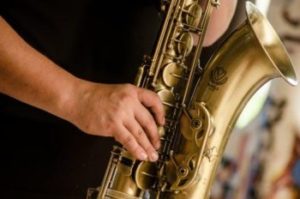
Understand Timeliness is Important – Music is based on an understanding of time. This is accomplished through rhythm. An understanding of rhythm as simple as an eighth note (and smaller) can affect the success of an ensemble. If a musician is late on an entrance, it can ruin a section of music, or an entire scene in a musical or opera. Students in music understand being on time for rehearsal is important too. They must practice arriving early for set-up and warm-ups, so they are ready for rehearsal on time. But also music students understand that tasks are important. There comes a time in every rehearsal that certain notes and rhythms must be learned and ready to play. Musicians work toward a goal and accomplish it. So, timing is drilled into a musician’s life from the first day he or she began singing or playing an instrument. Music students in the workplace will know promptness is important, whether arriving for work on time, or getting a particular task accomplished on time.
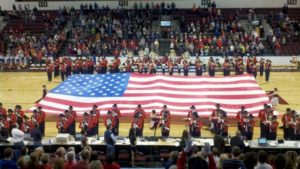
Keep Excellent Attendance – Students in music have an understanding of their importance and how it affects others. Students in a musical ensemble such as band, choir, orchestra or a musical understand attendance is essential to the success of the ensemble. If a musical part or actor is missing, rehearsals and performances can be stopped from effectively rehearsing or performing entire sections of music or scenes. Missing ensemble and cast members equals imperfection.
Perform In The Place Of Others – From time to time team members, ensemble members and work colleagues are absent. In music this can happen in both rehearsal and performance. Music students learn to “take up the slack” of missing members, if it means playing their parts for them, or running their lines, or even making up for their missing dynamics, or a solo. Music students know how to do their job, while doing the job of others too!
Become an Entrepreneur – Music opens doors for musicians. The founder of CDBaby, an online music store for independent musicians to sell their music, Derek Sivers, writes, “The skills needed to make a living as a musician are the exact same skills required to be a successful entrepreneur.” He says, “Musicians don’t realize that they are already entrepreneurs!” More and more musicians are writing their own music, creating their own musical styles and presenting them to the public on the internet. Digital technology is cheap compared to the “old school” technology of just a few years ago. Young musicians are learning how to market and sell their music through websites like CDBaby, Apple Music, Facebook, Twitter, Tunecore, Spotify, YouTube, Soundcloud, Wix, and Pandora to name a few.
To Do It Again…And Again…Until Right – Musicians learn to discipline themselves when practicing. Whether practicing solos or in ensemble rehearsals, music students learn to do it again. Remember the old saying of practice makes perfect? It’s true! Practice can make perfect, and effectively practicing always makes it better than it was before practicing. So, it might mean that a musician practices something multiple times until it is correct. This is a valuable tool for the workplace. If at first you don’t succeed …Try, try again!
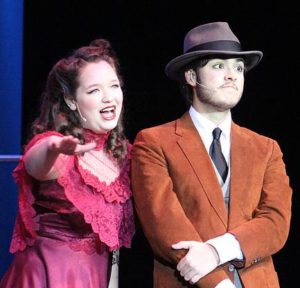
Build Confidence – Music students learn to build their confidence through practicing their instrument or singing. As the student improves on playing or singing a song, or a passage of music, self-confidence improves too. Picking up an instrument and competing for a chair placement in band and orchestra, or against students in a music contest helps to build confidence. Musicians are asked to sing and play in front of small and large audiences from time to time, which is the ultimate challenge of building confidence. This understanding of confidence and how to achieve it will transfer to the workplace as musicians will know their limits and know how to work through challenges. A confident employee is an employee who will help a business move forward.
Receive & Accept Feedback & Criticism – I tell my students to approach criticism and feedback in my classes like they would feedback from an automotive mechanic. Sometimes the news is better than expected, while other times there are things that need to be fixed. Music classes and play practices are times for criticism, so be prepared to fix and re-do until correct. Music allows for students to accept feedback from another source and use the criticisms to make decisions on improvements in their performance. Music students receive praise and criticism on a daily basis from their director, whether they are working on a song or scene in class, and during contest time from another director who is adjudicating their performances. Students in music performance also learn to accept that they sometimes get an opportunity and sometime not in the case of auditions for musicals and plays, solos, and ensembles. In the work force this will help students grow as young employees as they learn what is required and needed for a successful job experience. As you learn the position for which you are hired you will misjudge and make mistakes. Students in the performing arts will be able to cope with the feedback and make changes without becoming offended. They will be prepared to re-do until correct!
-Photography used with permission from Doug Austen, Tami Knedler, Annie Peters, and Jason Richins.

